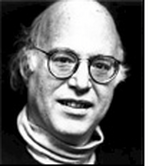Richard Sennett on the New ‘Flexibility’ at Work
In 1972, Richard Sennett and Jonathon Cobb wrote a book, "The Hidden Injuries of Class," describing the fabric of workers’ lives and the nature of their work. A quarter of a century later, Richard Sennett went back to some of the same people and some of the same workplaces, and discovered just how much things had changed. Being a working class person entailed many hardships, but there were certain aspects of working life that are now disappearing: the old job for life, unions that protected workers’ conditions, and gradual career progression based on seniority, for instance. Post-Fordist work creates its own, distinctive social stresses and strains, as described by Sennett.

Today … the emphasis is on flexibility. Rigid forms of bureaucracy are under attack, as are the evils of blind routine. Workers are asked to behave nimbly, to be open to change on short notice, to take risks continually, to become ever less dependent on regulations and formal procedures. This emphasis on flexibility is changing the very meaning of work … In attacking rigid bureaucracy and emphasizing risk, it is claimed, flexibility gives people more freedom to shape their lives. In fact, the new order substitutes new controls rather than simply abolishing the rules of the past—but these new controls are also hard to understand. The new capitalism is an often illegible regime of power.
A change in modern institutional structure has accompanied short-term, contract or episodic labour. Corporations have sought to remove layers of bureaucracy, to become flatter and more flexible organizations. In place of organizations as pyramids, management now wants to think of organizations as networks … This means that promotions and dismissals tend not to be based on clear, fixed rules, nor are work tasks crisply defined; the network is constantly redefining its structure …
Corporations break up or join together, jobs appear and disappear, as events lacking connections. Creative destruction … requires people at ease about not reckoning the consequences of change, or not knowing what comes next …
In work, the traditional career progressing step by step through the corridors of one or two institutions is withering; so is the deployment of a single set of skills through the course of a working life … An executive for ATT points out that the motto ‘no long term’ is altering the very meaning of work. ‘In ATT we have to promote the whole concept of the work force being contingent … “Jobs” are being replaced by “projects” …
‘No long term’ is a principle which corrodes trust, loyalty and mutual commitment … 25 Detachment and superficial co-operativeness are better armor for dealing with current realities than behavior based on values of loyalty and service … ‘No long term’ means keeping moving, don’t commit yourself, and don’t sacrifice …
Perhaps the most confusing aspect of flexibility is its impact on personal character … Character particularly focuses upon the long-term aspect of our emotional experience. Character is expressed by loyalty and mutual commitment, or through the pursuit of long-term goals, or by the practice of delayed gratification for the sake of a future end.
Sennett, Richard. 1998. The Corrosion of Character: The Personal Consequences of Work in the New Capitalism. New York: Norton. pp. 9–10, 23, 30, 22, 24–25, 10. || Amazon || WorldCat
